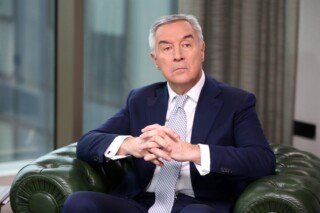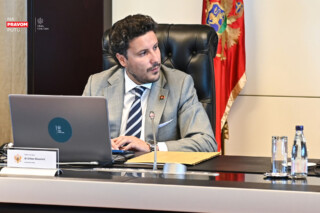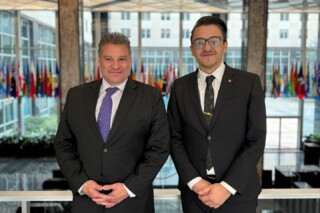Russia will not give up our region. Now it has chosen an intense media offensive simultaneously keeping in touch with a number of politicians and parties, primarily in Serbia and Montenegro. Russia is waiting for its opportunity. But first of all, it’s our fault – where there is no clear political European agenda, the door is open to everyone, Prof. Dr. Žarko Korać, a university professor, former deputy PM in the government of Zoran Đinđić and MP in the Serbian parliament, told in an interview for Dnevne Novine daily.
As an experienced politician, Mr Korać claimed the Montenegrin government has been trying to consistently get out of the Balkan borders where it used to be captivated, and that only one man was leading the battle in our society for which he will be acknowledged throughout the history.
“You are a small society, deeply politically divided. It takes a lot of political courage to follow the path you chose,” Mr Korać noted.
Speaking about the espionage affair, on Belgrade-Moscow relations, he said that the Serbian president “sees Russia as a guarantor of their political goals in the Balkans, while Russia cynically uses Serbia as the last part of its “sanitary cordon “on the European soil.”
“With the exception of Serbia and Republika Srpska, Russia has no political support of this type anywhere else, and I think this is far more significant than the issue of NATO enlargement. Of course, Russia is the reality of the world we live in and it should always be taken into account, but not to voluntarily agree to be in a relationship of political semi-independence. It should not be forgotten that Russia granted a political asylum to some of the prominent individuals from the Milošević regime.“
On possible challenges that Montenegro might be facing in the next year having in mind the forthcoming parliamentary elections, Mr Korać noted: “So far, Montenegro has successfully dealt with the crises, some of which were very serious. However, Montenegro has a long tradition of statehood and it certainly helped a lot. What distinguishes Montenegro from Serbia today is that Montenegro is quite clearly and decisively oriented towards the European integration. As we have seen, it brings certain political risks. And I don’t think it is going to stop. But it’s what makes the decision of voters in the election clear and unambiguous. In Serbia, not only a part of the government but also part of the opposition is anti-European oriented. It’s a completely different situation for voters.”




